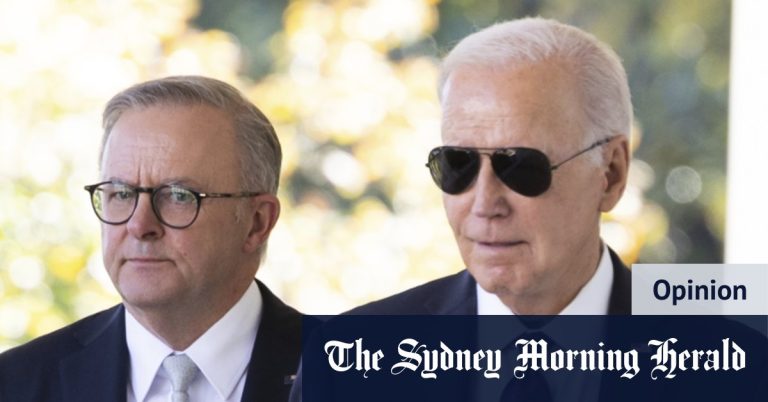Although the message was an obvious negotiating tactic, it also indicated the desperation of those countries. The issue has caught the attention of the US Department of Defence, which has become more vocal about the issue, and prompted the Australian and New Zealand ambassadors to the US to weigh in.
On February 22, Kevin Rudd and his New Zealand counterpart, Biddy Currie, wrote to congressional leadership expressing concern about delayed funding for the Export Control Act.
“The United States has said on multiple occasions that it wants to modernize, renew and re-engage its partnerships in the Pacific, so it is moving to the issue of credibility,” says James Batley, former high commissioner for the Solomon Islands and Fiji. And former Deputy Minister of Foreign Affairs and Trade. “You have to put your money where your mouth is.” Batley is now a Distinguished Fellow in the Department of Pacific Affairs at the Australian National University.

A US Navy ship in the Pacific Ocean during exercises last year.
The Pacific has always been a strategically vital region for Australian trade and security. The American presence in the Marshall Islands, Palau, and the Federated States of Micronesia served as a counter to Chinese military expansion. It has also helped contain China as it intensifies its economic and political engagement in the region, which has grown dramatically under Xi Jinping's leadership.
The Chinese presence has grown through aid and investment programs such as the Belt and Road Initiative, the security agreement with the Solomon Islands, and the provision of police services in countries from Kiribati to Papua New Guinea and Fiji. In addition, China's leadership was able to secure agreements from Nauru, Kiribati, and the Solomon Islands to sever diplomatic relations with Taiwan as part of its one-China policy.
At the same time, Australia has been active in deepening its engagement in the region through aid, infrastructure spending, and labor mobility schemes, making it easier for workers from the Pacific region to get work here.
The Pacific region receives by far the largest slice of Australia's foreign aid budget. The Lowy Institute says Australia spends 38% of its aid budget on the Pacific, which is up from 28% in 2010. At that time, the Pacific received the same amount of aid as Southeast Asia.
The rise of the Pacific has come at the expense of Southeast Asia, which has its own problems with an increasingly aggressive China. In the Philippines, territorial disputes have intensified clashes between Chinese and Philippine navies.
In a speech to the Australian Parliament on Thursday, Philippine President Ferdinand Marcos Jr. delivered a very blunt speech, warning against the rules-based order in the region that has been in place since World War II, along with the peace and stability it has brought. They were in danger.
It was another reminder of why Australia should be concerned about US preoccupation with domestic politics.
Anne Hyland is an award-winning writer and senior correspondent for Sydney Morning Herald And the age.

